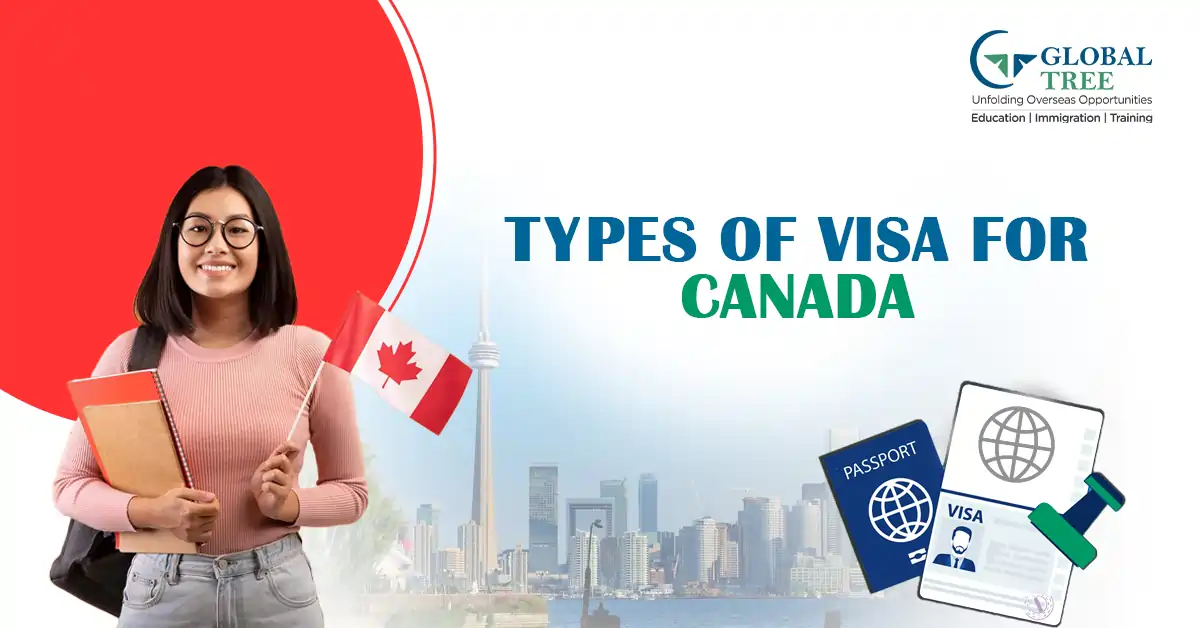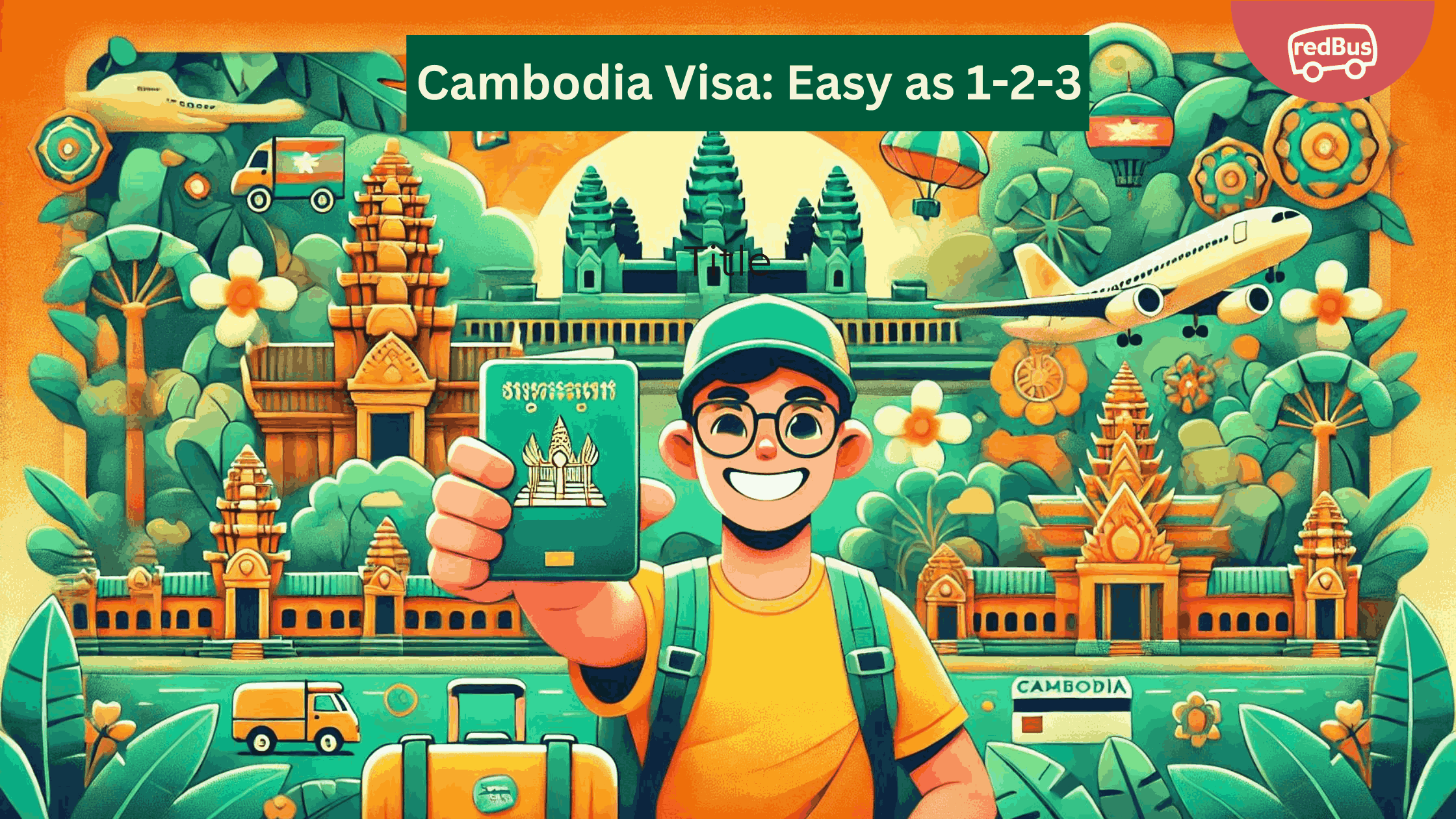Canada offers a variety of visa options designed to accommodate different types of travelers and immigrants. Whether you are visiting for tourism, seeking to work or study, or looking to immigrate permanently, Canada’s visa system provides pathways tailored to your specific needs. Understanding the various Canada visa types is essential for determining which visa aligns with your purpose of travel. CANADA VISA TYPES The two broad categories of visas for Canada are temporary visas and permanent resident visas, with each category encompassing multiple subtypes. This article will explore the key Canada visa types, highlighting their eligibility requirements, application processes, and the purpose they serve.
Temporary Resident Visas (TRV)
Temporary Resident Visas (TRVs) are intended for foreign nationals who wish to visit Canada for a short period. This category includes tourists, business travelers, and individuals visiting family or friends. TRVs allow travelers to stay in Canada for a limited time, typically up to six months. There are several subtypes of TRVs, including: Tourist Visa: The most common type of TRV, a tourist visa allows individuals to visit Canada for leisure purposes, such as sightseeing, attending events, or visiting family and friends. Business Visa: A business visa is designed for individuals who wish to travel to Canada for business-related purposes, such as attending conferences, meetings, or negotiations. Visiting Family or Friends: This subtype of the TRV allows individuals to visit Canadian citizens or permanent residents who are their family members or friends.
To apply for a TRV, applicants must demonstrate that they meet the requirements, such as having a valid passport, proving sufficient financial resources to support their stay, and intending to return to their home country after the visit. A TRV can be a single-entry or multiple-entry visa, depending on the applicant’s travel plans.
Electronic Travel Authorization (eTA)
The Electronic Travel Authorization (eTA) is a visa-exempt travel authorization for citizens of visa-exempt countries who wish to fly to Canada. The eTA is linked electronically to the traveler’s passport and allows entry into Canada for short stays. It is primarily for individuals visiting Canada for tourism, business, or transit purposes. The eTA is valid for up to five years or until the passport expires, whichever comes first. Applicants for an eTA must meet the following requirements: Visa-exempt nationality: Citizens of visa-exempt countries (such as the United States, most EU countries, Australia, and Japan) are eligible for an eTA. Short-term stay: The eTA is valid for visits of up to six months for tourism, business, or transit purposes.
Valid Passport: The applicant must have a valid passport for the duration of their stay in Canada. Online Application: The eTA application process is entirely online and is typically processed within minutes, although applicants are advised to apply at least 72 hours before their departure. CANADA VISA REQUIREMENTS While the eTA grants permission to board a flight to Canada, it does not guarantee entry. Canadian border authorities will determine whether the traveler is admissible based on the purpose of their visit.
Work Permits and Study Permits
Work and study permits are specific types of temporary visas issued to individuals who wish to work or study in Canada. Both types of permits come with their own eligibility criteria and application processes:
Work Permits: A work permit allows foreign nationals to work in Canada for a specific employer and period. To qualify for a work permit, applicants typically need a job offer from a Canadian employer, and in some cases, a Labour Market Impact Assessment (LMIA) to confirm that no Canadian citizens or permanent residents are available for the job. There are two main types of work permits: employer-specific permits and open work permits. Employer-specific work permit: This type of permit is tied to a specific employer, and the individual can only work for that employer. Open work permit: An open work permit allows the individual to work for any employer in Canada, with certain restrictions.
Study Permits: A study permit is required for international students who wish to study at a designated learning institution in Canada. To apply for a study permit, applicants must provide proof of acceptance from a Canadian educational institution, sufficient financial resources to support their stay, and proof of no criminal record. Study permits are typically valid for the duration of the student’s program of study, plus an additional 90 days. Both work and study permits require applicants to meet specific conditions, such as maintaining enrollment in a full-time program for study permits or abiding by employment terms for work permits.
Permanent Resident Visas
Permanent Resident (PR) visas are designed for individuals who wish to live and work in Canada on a permanent basis. There are several pathways to obtaining permanent residency in Canada, each with specific eligibility criteria and application processes:
Express Entry System: The Express Entry system is a popular immigration pathway for skilled workers who wish to become permanent residents of Canada. The system uses a points-based system to assess applicants based on factors such as age, education, work experience, and language proficiency in English or French. The three main programs under Express Entry are: Family Sponsorship: Canadian citizens and permanent residents can sponsor their spouses, common-law partners, dependent children, and other eligible relatives to become permanent residents of Canada.
Provincial Nominee Programs (PNP): Under PNP, Canadian provinces and territories can nominate individuals for permanent residency based on their skills and work experience in demand in the province. Business Immigration: Entrepreneurs, investors, and self-employed individuals may be eligible for permanent residency through Canada’s business immigration programs. Permanent residents enjoy many of the same benefits as Canadian citizens, including access to healthcare, education, and social services. However, they are not allowed to vote or hold certain government positions.
In conclusion, Canada offers a wide range of visa types tailored to the diverse needs of travelers, workers, students, and those seeking permanent residence. Understanding the eligibility criteria, application process, and purpose of each visa type is crucial for ensuring a smooth and successful journey to Canada. Whether you are visiting for a short trip or planning to live and work in Canada permanently, there is a visa option suited to your needs.



